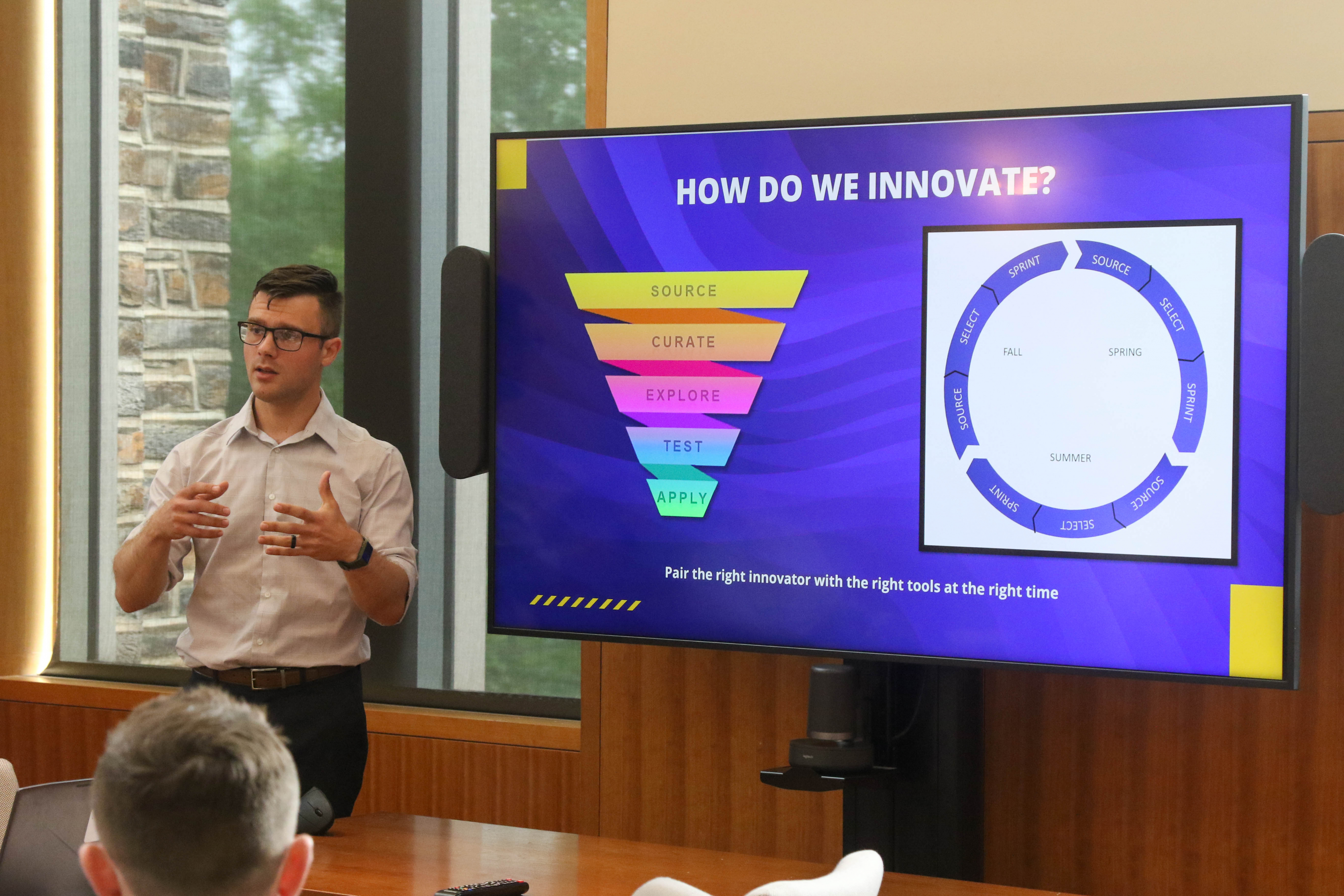Duke Engineering Hosts Defense Innovation Workshop
By Annie Gibson
Members of Duke faculty and innovators in the U.S. military met to exchange project ideas and research portfolios to find pathways to solutions

Duke faculty, the XVIII Airborne Corps and innovators from Fort Liberty met on June 6 at a defense innovation workshop to collaborate on bottom-up solutions as a part of their Educational Partnership Agreement. Presenters from the XVIII Airborne Corps, Duke University and the Civil-Military Innovation Institute met for a day filled with discussing innovation strategy, funding, education, training and implementing solutions to problems common to soldiers.
The list of problems in need of solutions starts with the XVIII Airborne Corps, which collects problem statements from soldiers at the ground level and works to refine them.
“We try to utilize resources such as design thinking courses, which Duke has provided in the past, to help refine those problem statements,” said Shawn Cooper, XVIII Airborne Corps Innovation Officer. Once we get those refined problem statements we either have the soldiers prototype devices themselves with additional input or kick it out to an academic program for development.”
Events like this defense innovation workshop lay the groundwork for further, more tangible collaboration on the ground level.
“There’s already a lot of huge organizations for taking top-down ideas and large projects,” Cooper said. “We’re focused on giving soldiers the skills, opportunities and tools to solve problems with the partners in the local area.”

Ben Borger and David Jordan are pathfinder warfighter innovation chiefs at the Civil-Military Innovation Institute at Fort Liberty. They are touch points with soldiers that come into Fort Liberty’s makerspace to address problems they’re seeing. At this makerspace, soldiers can submit the problems they are experiencing into a portal. From there, they try to address the problem in the makerspace or pass the problem along to be evaluated in the academic settings.
“Where soldiers find that something doesn’t connect, either through software, or through the kit, or through a weapon system that they’re working with every day, they’re looking for the most streamlined way to better that equipment, and better their production and how they do business,” Jordan said.
Access and proximity to one of the nation’s top universities is important to the collaborative innovation efforts.
“It’s good for everybody to network and find out what everybody else is doing,” Borger said. “But especially on a university level, oftentimes, you don’t get access to private universities like you do with Duke. Getting up here and sharing what we do, and also hearing what they’re working on, is very important.”
Participants in the workshop left with tangible plans for future collaborations and pathways to solutions for Fort Liberty.
